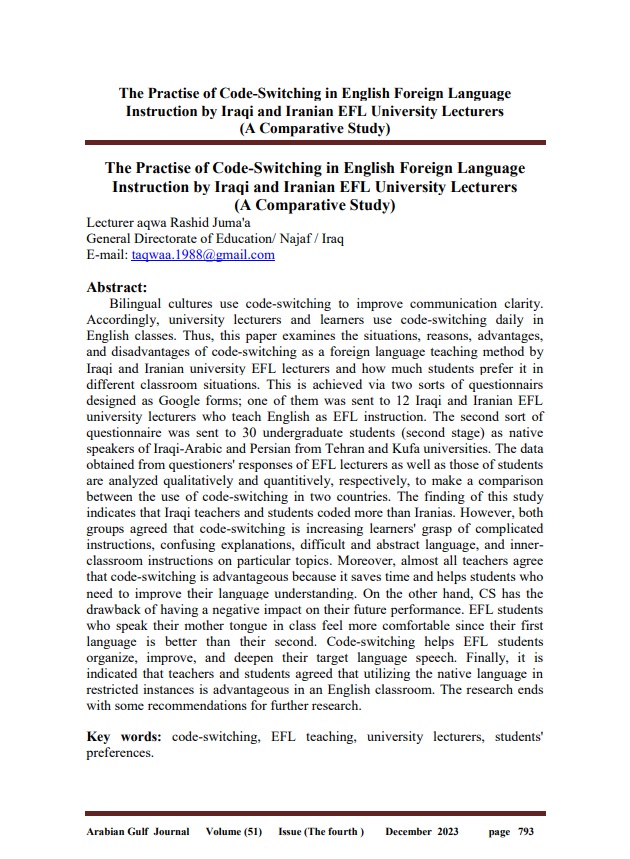The Practise of Code-Switching in English Foreign Language Instruction by Iraqi and Iranian EFL University Lecturers (A Comparative Study)
Keywords:
code-switching, EFL teaching, university lecturers, students' preferences.Abstract
Bilingual cultures use code-switching to improve communication clarity. Accordingly, university lecturers and learners use code-switching daily in English classes. Thus, this paper examines the situations, reasons, advantages, and disadvantages of code-switching as a foreign language teaching method by Iraqi and Iranian university EFL lecturers and how much students prefer it in different classroom situations. This is achieved via two sorts of questionnairs designed as Google forms; one of them was sent to 12 Iraqi and Iranian EFL university lecturers who teach English as EFL instruction. The second sort of questionnaire was sent to 30 undergraduate students (second stage) as native speakers of Iraqi-Arabic and Persian from Tehran and Kufa universities. The data obtained from questioners' responses of EFL lecturers as well as those of students are analyzed qualitatively and quantitively, respectively, to make a comparison between the use of code-switching in two countries. The finding of this study indicates that Iraqi teachers and students coded more than Iranias. However, both groups agreed that code-switching is increasing learners' grasp of complicated instructions, confusing explanations, difficult and abstract language, and inner-classroom instructions on particular topics. Moreover, almost all teachers agree that code-switching is advantageous because it saves time and helps students who need to improve their language understanding. On the other hand, CS has the drawback of having a negative impact on their future performance. EFL students who speak their mother tongue in class feel more comfortable since their first language is better than their second. Code-switching helps EFL students organize, improve, and deepen their target language speech. Finally, it is indicated that teachers and students agreed that utilizing the native language in restricted instances is advantageous in an English classroom. The research ends with some recommendations for further research.




